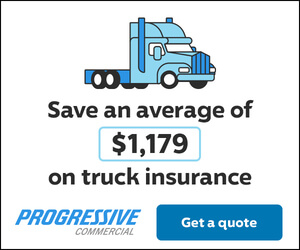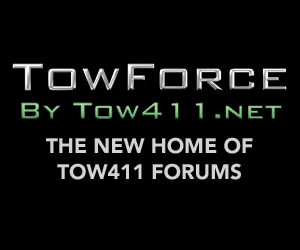It was a bright, sunny day full of promise when I sent my wife into the doctor’s office to get paperwork needed to start my new treatments. One inaction led to another and before I knew it, we were told to go home, relax, and wait. They had everything handled. After hearing that they had everything handled, I no longer wanted to play their waiting game. My subsequent arrival at the Emergency Room involved a series of questions that I had to answer before I could take my place in line. Those questions were used to separate emergency situations from secondary needs. That series of questions reminded me of when I ran a phone training company for car dealerships, training their sales, service writers, and parts reps on the right questions to ask customers.
Like the various departments in a dealership, I have no doubt that you have several departments in your towing business, each with different tasks. When an accident happens or someone has a breakdown, a team member takes the call. They answer the phone, take the initial request, and then start the process of helping. Knowing what questions to ask helps to start the process with clarity and efficiency. If the caller sounds stressed, using a soothing, calm voice on the phone not only helps the caller to settle down but also helps you to focus on delivering your questions to get the crucial answers you need.
When I started my training company, we did the phone training and supplied mystery shopping calls. This backed up whether the service writers, parts, and salespeople were using the training for which they were paying. Sometimes it was a revelation for the business owner because they could hear a call that proved a rep was not using the training. Most of the time, it was affirmed that they were using the training to secure a discovery ride, pick up a part, or have service done on a particular vehicle. The point is that accountability and clear procedures work.
Knowing what your people say when your staff picks up the telephone is paramount to your business’ success. A great opening sets a professional, helpful tone. Always answer each call with something like this: “Thank you for calling ABC Towing, how may I direct your call?”
This works especially well if you have a towing and recycling business on your lot, as it immediately handles routing. If you say, “how may I direct your call,” they will usually respond that they just need a tow. If the call is from the local authorities or police department, they will certainly let you know the situation right away.
I have compiled a series of essential questions that can help you bring the right equipment to the accident or breakdown, ensuring you are prepared to complete your tow or doing a difficult recovery. Using this type of structured inquiry will cut down on guesswork and wasted time, which saves you money and gets the customer back on track faster.
Include these types of questions in your interactions with your customers. (This also applies to road authorities or law enforcement, who often have limited information but need quick, accurate service.)
- “What kind of help do you need?” (A simple open-ended question that gives the caller a moment to explain their primary concern.)
- “What is your exact location? Perhaps a mile marker or a subdivision? And are there any intersecting streets?” (Getting multiple data points helps your driver pinpoint the scene quickly, especially in areas with poor GPS service.)
- “What’s the type of vehicle or something else that needs to be towed? (Please provide the Year, Make, and Model of the vehicle.)” (This is crucial for determining weight, clearance, and any special towing requirements.)
- “Is this an electric or fuel engine?” (If electric, you will be able to deploy the right equipment and might ask for other specific information later, as EV towing and recovery require special safety and equipment considerations.)
Once your driver arrives at the scene and talks with the driver and/or those in charge, they can finish with a crucial set of questions. It could be that more equipment is needed than the authorities or initial callers realized to transport the vehicle or complete a complicated recovery. Giving your driver this part of the script allows them to contact the office for additional resources and provide the owner with your business card, acting as an on-the-spot customer service representative.
- “If it can be repaired, are you planning on having it repaired?” If they say, yes, then ask, “What address should it be towed to?” (This solidifies the tow destination and helps manage the customer’s expectations for the next steps.)
- “You could store it at our lot so an adjuster can review the damage before it is repaired. Is that good?” (This offers a convenient, immediate solution and can secure additional storage revenue for your business.)
- “And what is your number? I can text you now so you can easily find our store when heading here. What is the best number to use?” (Ask this question if you are dealing with the owner or driver of the vehicle while at the scene.)
In addition, getting a name and phone number from the caller helps to create a client list for down the road. People tend to remember whom they have worked with in the past when they need help again. Asking these questions will help get a customer’s name and phone number so you can enter it into your client list system. If you have other questions specific to your area of operation or specialized services, then add them! The script is a living document designed to maximize efficiency.
With digital dispatch, your dispatcher’s initial call script shifts its focus:
- From Manual Data Entry to Verification: The dispatcher is no longer keying in the address; they are verifying the GPS location pulled by the software.
- From Discovery to Empathy and Assurance: The focus of the conversation moves to empathy. The dispatcher can use the time saved on logistics to use the empathetic line: “I’m so sorry this has happened. I see exactly where you are and the nearest heavy-duty wrecker, Truck 4, has been dispatched and is 12 minutes away. You will receive a text message in 60 seconds that lets you track the truck in real-time. I will stay on the line until you confirm you received the text.”
- From Reactive to Initiative-taking: Instead of waiting for the customer to call back for an update, the system manages the updates for you, reinforcing a modern, professional, and highly efficient company image.
Whenever possible, finish your call with this kind of statement to reinforce your company’s professional, caring image: “I am so sorry this has happened. (Shows empathy.) You can expect someone to be there within a few minutes.”
You are controlling a series of questions that must be asked to quickly discover what assistance the customer needs before arriving on the scene of the accident or breakdown. This systematic approach helps to avoid multiple trips by bringing extra equipment to the scene, saving you time and money. However, by asking the right questions initially, you will also be better prepared for those unavoidable situations where you will need extra equipment brought to the scene, as you will know about it sooner.
No one wants to hear that someone is having a bad day while on the telephone. Make sure anyone who receives the call remembers your company image with right verbiage and keeps it positive, professional, and upbeat. I have always thought that someone who is tasked with answering the phone should be able to clearly state how they can help with the questions they are prepared to ask each caller. Bear that thought in mind when anyone answers the phone. If you need to put a mirror on the counter and smile at yourself or take a deep breath before picking up the phone, then do it each time you answer a call until you do not need a reminder anymore. A smile, even unseen, comes through in the voice.
I am feeling much better now because the ER asked the right questions to get me the help I needed. Having the right questions, your dispatcher, and every team member can help bring more repeat customers into your towing business. A clear, empathetic, and efficient process is the best marketing tool you have.
If you feel you need help refining the questions your team should be asking customers to improve your efficiency and customer retention, I would love to help.








